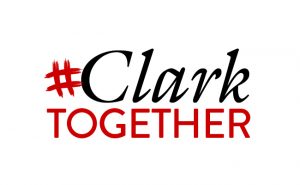 Ashley Jean, MHS ’20, joins contact tracing team working to control virus spread
Ashley Jean, MHS ’20, joins contact tracing team working to control virus spread
After earning her master of health science in community and global health from Clark’s International Development, Community, and Environment Department (IDCE) earlier this month, Ashley Jean joined the fight against the COVID-19 pandemic in Massachusetts. The recent Clark grad became a part of the contact tracing team at Partners in Health (PIH).
“Clark definitely prepared me to be the public health professional I want to be. If it wasn’t for my graduate program, I would not be interested in data science, and would not have had the opportunity to be a contact tracer,” says Jean.
Jean has been contact tracing for about a month and already has been promoted to case investigator. “I’m very grateful for this position because it applies everything I learned at Clark. It has prompted me to see how things work in relation to the pandemic on an organizational level. I’m using the skills and experiences I learned in the classroom,” she says.
 “The PIH contact tracing hiring process was extremely competitive. The company announced that it had 1,000 positions available and received more than 35,000 applications,” says Marianne Sarkis, IDCE assistant professor and Jean’s faculty adviser.
“The PIH contact tracing hiring process was extremely competitive. The company announced that it had 1,000 positions available and received more than 35,000 applications,” says Marianne Sarkis, IDCE assistant professor and Jean’s faculty adviser.
Contact tracing is a major thrust of the public health initiative to stop the infectious coronavirus and control the outbreak’s severity. The COVID-19 Community Tracing Collaborative (CTC), announced by Massachusetts Gov. Charlie Baker on April 3, launched the nation’s first statewide COVID-19 contact tracing program, which has connected with more than 70,000 patients so far, says Jean.
According to PIH, the CTC initiative accelerates the state’s efforts to contain the spread of COVID-19 by dramatically scaling up the state’s capacity for contact tracing and is designed to not just flatten the curve, but to bend the curve downward to more rapidly reduce the number of cases in Massachusetts.
Widespread testing and aggressive contact tracing have been key pillars in the public health response to infectious disease outbreaks and play an important role in disease control programs. Expanded testing and contact tracing will support the state’s ongoing efforts to combat the virus, says Jean.
As a contact tracer, Jean reaches out to Massachusetts residents who have been in close contact with COVID patients to counsel them on testing and quarantine guidelines, refer them for testing if necessary, and connect them to important resources throughout the quarantine process and beyond.
“Testing, contact tracing, and safe, high-quality care are core elements in the state’s response to COVID-19,” she says. The tracing process works in tandem with statewide efforts to increase testing, improve communication, and implement isolation and quarantine protocols.
Her job is to gather clear and succinct data to give an accurate picture of patients’ circumstances and to make sure that the voices of those affected by the virus are heard. She also provides resources to those with questions. The process of gathering information remains the same whether the interview is face-to-face or virtual.
Jean ensures that those who are high priority and need essential resources such as food and water — or even just information — get what they need. While she tries to provide the best guidance possible, Jean does not give medical advice; she reinforces the best methods of quarantine and isolation.
Jean has had overwhelmingly positive experiences and thinks that everyone in Massachusetts is doing their part. People she speaks to are aware of the rules of quarantine and social distancing and want to comply.
“I’m the reliable voice who helps answer questions and checks to see if they are all right. I think that’s what people want during this time. Helping brings me a little bit of happiness, because every household is struggling in their own way,” she says.
While it isn’t clear what will happen when the pandemic ends, Jean is happy to be part of PIH’s initiative, and hopes to be part of the company’s work after contact tracing is completed. She plans to continue her work in public health.
Her family is originally from Haiti and she has visited the country on several public health related trips. One of her professional goals is to set up more sustainable health initiatives in Haiti — and PIH has programs in the country.
“When we talk about public health, it’s not just about the numbers; there has to be a human side as well. I came to Clark because I fell in love with the public health program, which focuses on combining research and the humanities of life. It is very important to me to make sure that the initiatives and the framework that we build help and improve people’s lives,” she says.
Jean feels she flourished while at Clark and felt supported by the university. “Marianne Sarkis helped push me beyond my skills and what I thought was possible, including working with data,” Jean says. She is now learning the Python programming language and has done multiple quantitative and qualitative research projects on her own — due in large part to the support she found at Clark.
“I definitely have evolved as a person because of the supportive environment and community that was there,” she says. “I’m very grateful for Clark and everything that it has done for me.”


